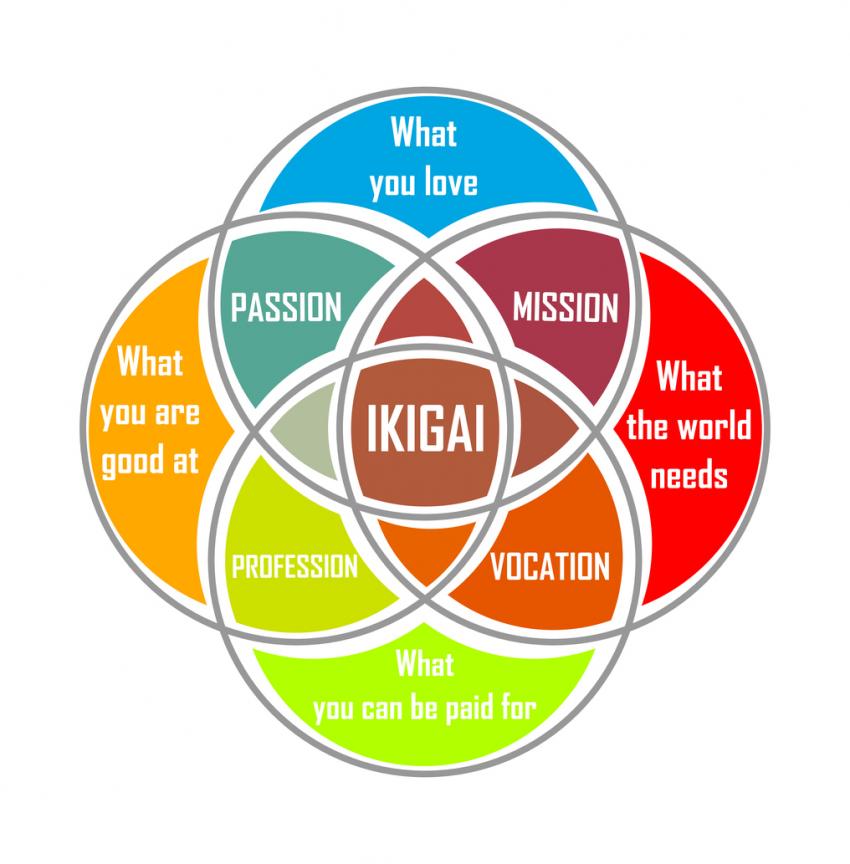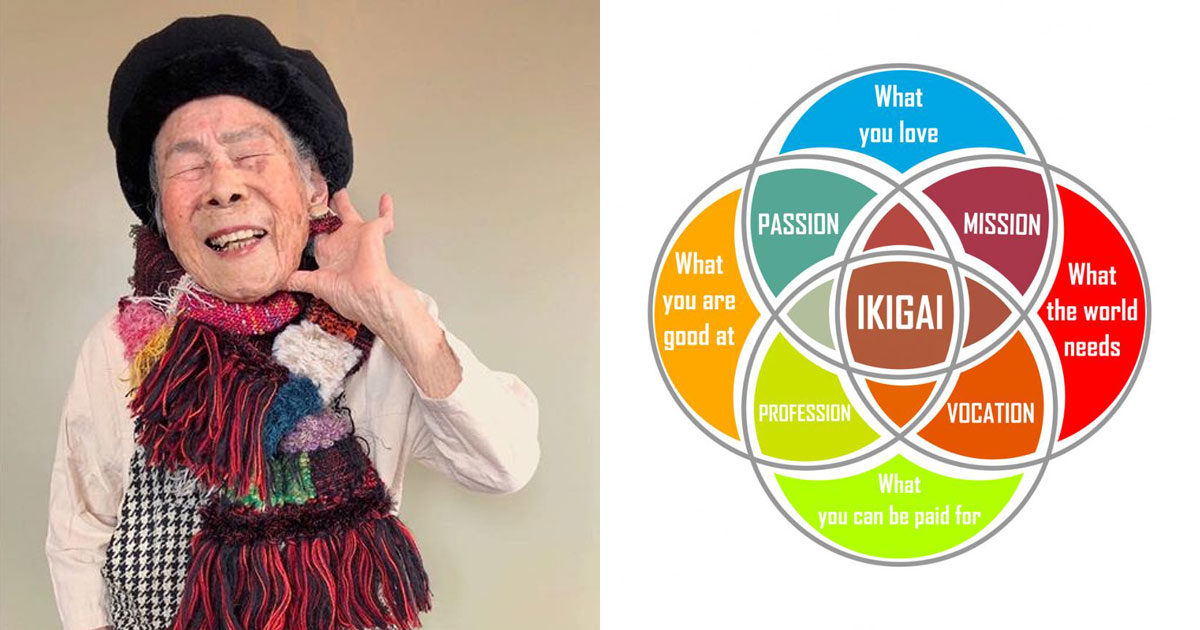What is a purpose-driven life?
If you are still looking, fret not.
The age-old ideology of ikigai can help you find your own raison d'être, a.k.a. reason for being.
What's that?
Ikigai is the age-old Japanese ideology that has long been associated with the long life expectancy in the country.
While there's no English translation, it's made up of the Japanese words iki (いき), which means "life", and gai (甲斐), which means "the realisation of what one hopes for".
Together, ikigai is the idea of finding joy in life through purpose.
In other words, your ikigai is what gets you up every morning and keeps you going.
Ikigai Venn diagram
The best encapsulation of the ikigai ideology is this ikigai Venn diagram.
 Image via Japan Today
Image via Japan Today
It constitutes four main qualities:
- What you're good at
- What the world needs
- What you can be paid for
- What you love
Ikigai basically boils down to that sweet spot smack right in the middle where these points overlap.
Backed by science
Out of the many interesting conclusions that scientists and sociologists have reached, one theory argues that ikigai can make you live longer and with more direction.
Well, the theory comes from the findings of a popular Japanese TV programme that followed seven people in their late 90s and early 100s around the small town of Kyotango in Kyoto where they reside.
The programme found that these seven elderly folks all had one thing in common: A hobby they practiced every day.
They also found that all of them had remarkably high levels of DHEA, a steroid hormone that many believe may be the miracle "longevity hormone".
The programme therefore suggested that having this one thing that keeps you interested, focused, and gives you a sense of satisfaction in life may boost your youth DHEA hormone, which may then help you lead a longer and happier life.
The term ikigai was used when referring to this concept.
Same concept exists elsewhere
Okinawa, Japan, is also home to one of the highest proportion of centenarians in the entire population.
While the healthy diet and low level of stress are also factors that contribute to a long life, the island's active population of non-retiring, purpose-driven residents are similar to other long-living communities like in Sardinia, Italy and Icaria, Greece.
Therefore, Dan Buettner, a New York Times bestselling author, says that the concept of ikigai is not exclusive to Okinawans:
There might not be a word for it but in all four blue zones such as Sardinia and Nicoya Peninsula, the same concept exists among people living long lives.
Many Japanese haven't found their ikigai yet
However, finding one's ikigai is no simple task.
The concept of ikigai might have originated from Japan in the Heian period (794 to 1185), but it doesn't mean that the Japanese people have life figured out any better than us.
While some might think that one's ikigai should be one's work, ikigai in Japan often has nothing to do with work or income.
In a 2010 survey of 2,000 Japanese men and women, just 31 percent of participants cited work as their ikigai.
Someone's value in life can be work, but it's definitely not limited to that.
But perhaps we need not overcomplicate things.
This is because while ikigai will likely lead to a better life "because you have something to live for", it's not something "grand or extraordinary".
In fact, it's something "pretty matter-of-fact".
Top image adapted via 1000wave/IG and Japan Today
If you like what you read, follow us on Facebook, Instagram, Twitter and Telegram to get the latest updates.
